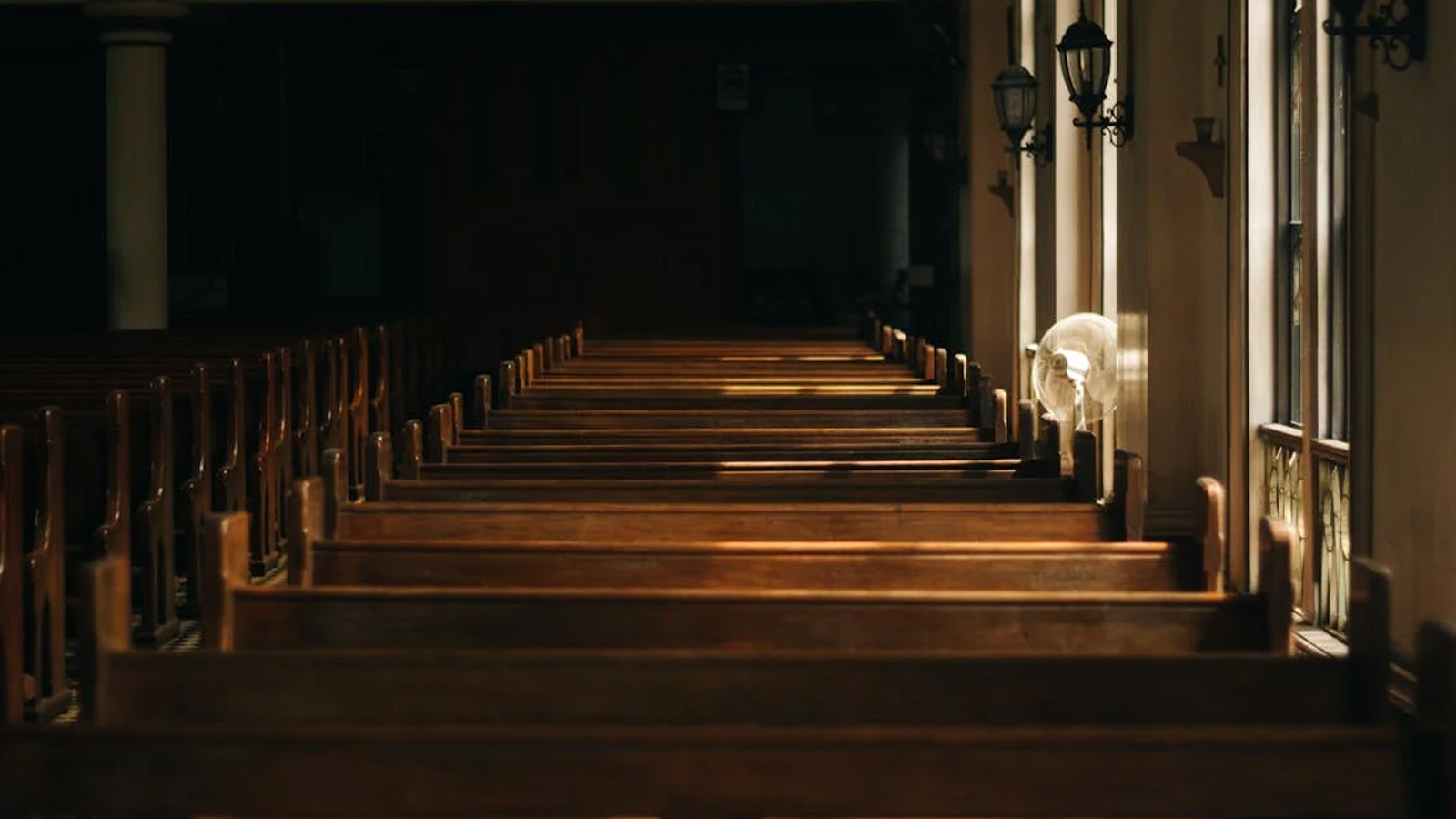(Updated on October 30th, 2021)
Much has been written about both the Biblical illiteracy of teenage believers and the flight of young people from the Church. Many have observed this trend, and I too have witnessed it anecdotally as a youth pastor (and shamefully, I contributed to the trend for some time before I changed course). Some writers and Christian observers deny the flight of young people altogether, but the growing statistics should alarm us enough as Church leaders to do something about the dilemma. My hope in this post is to simply consolidate some of the research (many of the summaries are directly quoted) so you can decide for yourself. I’m going to organize the recent findings in a way that illuminates the problem:
Research Related to Spiritual Life of Teenagers:
Soul Searching: The Religious and Spiritual Lives of American Teenagers
Christian Smith and Melinda Lundquist Denton, Oxford University Press, 2005
Book Findings: The majority of teenagers are incredibly inarticulate about their faith, religious beliefs and practices, and its place in their lives. The de facto dominant religion among contemporary U.S. teenagers is what they call ‘Moralistic Therapeutic Deism’: A God exists who created and orders the world and watches over human life on earth; God wants people to be good, nice, and fair to each other, as taught in the Bible and by most world religions; the central goal of life is to be happy and to feel good about oneself; God does not need to be particularly involved in one’s life except when God is needed to resolve a problem; and good people go to heaven when they die.
Almost Christian: What the Faith of Our Teenagers is Telling the American Church
Kenda Creasy Dean, Oxford University Press, 2010
Book Findings: Dean affirms what Soul Searching called ‘Moralistic Therapeutic Deism’ “If teenagers lack an articulate faith, it may be because the faith we show them is too spineless to merit much in the way of conversation.”
The Teen Guide to Global Action: How to Connect with Others (Near & Far) to Create Social Change
Barbara A. Lewis, Free Spirit Publishing, 2007
Book Findings: More teens are embracing a nebulous belief in God. Yet there’s been an “explosion” in youth service since 1995 that Lewis attributes to more schools emphasizing community service.
The State of Theology
Ligonier Ministries and Lifeway Research (2015)
Study Findings: In this survey of theological beliefs, researchers asked self-professing Christians to respond to a series of statements related to classic, historic Christian doctrine. In every answer offered related to these theological beliefs, young people between the ages of 18 and 34 consistently held heretical views at a higher percentage than older respondents. Young people who identify themselves as Christians, are far more likely to hold views that aren’t Christian.
Generation Z and Religion: What New Data Show
Religion in Public (2019)
Study Findings: This study drawing on survey data from more than 2,200 Gen Z Americans, found that 45 percent of Gen Z Americans rarely or never attend church while just 1 in 4 reported attending weekly or more. African American Gen Zer’s report having the highest rates of weekly church attendance. Roughly 1 in 10 among this generation say they are atheists.
The State of Religion & Young People 2021: Navigating Uncertainty
Springtide Research Institute (2021)
Study Findings: This study of more than 10,000 young people aged 13-25 found that 68% of Protestant respondents, 56% of Roman Catholics, and 52% of “Just Christians” said they were a member of a spiritual or religious community. Young white and Hispanic believers are least likely to participate in any kind of organized religion. About 71% of respondents considered themselves to be at least slightly religious or spiritual. The study also found that many young people prefer to confide in their family and friends rather than religious institutions during times of uncertainty or difficulty.
State of the Bible, USA 2021
American Bible Society (2021)
Study Findings: This study of nearly 100 Gen Z youth (ages 15–17) and more than 3,300 Gen Z adults (ages 18–24) found that only 9% of the younger group could be designated as “Scripture Engaged” – centered on reading the Bible – compared to 14% of Gen Z adults and 23% of Millennials. 47% of Gen Z youth are designated as “Bible Disengaged” – five times as many as those who are “Bible Engaged.” Even fewer Gen Z American youth read their Bibles in 2020 in the midst of the racial injustice protests and the pandemic. The study also found that Gen Z teens were more prone than older generations to identify themselves as atheist (35%), agnostic or religious unaffiliated – compared to 30% of Millennials and Gen X, and 26% of Baby Boomers.
Reviving Evangelism in the Next Generation
Barna Group, produced in partnership with Alpha USA (2021)
Study Findings: This study of 1,300 teenagers found that 82 percent of Christians between the ages of 13 and 18 say that it’s important to them to share their faith. And nearly 80 percent say they have had a conversation about faith with someone at least once in the past year.
Research Related to the Attitude of College Professors:
Politics and Professional Advancement Among College Faculty
Stanley Rothman, S. Robert Lichter, Neil Nevitte (2005)
Study Findings: “Nearly three-quarters” (72%) of faculty members describe themselves as politically liberal, according to 1999 data from the North American Academic Study Survey (NAASS), up from 39 percent in a 1984 survey by the Carnegie Foundation for the Advancement of Teaching.
How Religious are America’s College and University Professors?
Neil Gross, Solon Simmons (2006)
Study Findings: About 25% of college professors are professing atheists or agnostics (5-7% of the general population is atheistic or agnostic). Only 6% of college professors said the Bible is “the actual word of God”. 51% described it as “an ancient book of fables, legends, history and moral precepts.” 75% believe religion does not belong in public schools.
The Religious Beliefs and Behavior of College Faculty
The Institute for Jewish & Community Research Review – Staff (2007)
Study Findings: The study revealed several findings related to the political and religious views of professors, including the following key discoveries:
“Most Faculty Believe in God, but Atheism Is Significantly More Prevalent among Faculty Than the General Public
The proportion of faculty who self-identified as atheist is over five times the proportion of people who self-identified as atheist in the general public.
Faculty Are Much Less Religious Than the General Public
The American public is much more likely to say that religion is very important in their everyday lives and to attend religious services more frequently than faculty.
Faculty Feel Warmly about Most Religious Groups, but Feel Coldly about Evangelicals and Mormons
Faculty have positive feelings toward Jews, Buddhists, Catholics, and Atheists.
Faculty Feel Most Unfavorably about Evangelical Christians
This is the only religious group about which a majority of non-Evangelical faculty have negative feelings.
Faculty Are Almost Unanimous in Their Belief That Evangelical Christians (Fundamentalists) Should Keep Their Religious Beliefs Out of American Politics
Faculty who are secular/liberal are more likely to favor separation of religion and government, and those who are religious and conservative are more likely to advocate a closer connection between religion and government.
Although Faculty Generally Oppose Religion in the Public Sphere, Many Endorse the Idea That Muslims Should Express Their Religious Beliefs in American Politics
Faculty are far less likely to endorse Evangelical Christians expressing their beliefs in American politics.”
Compromising Scholarship; Religious and Political Bias in American Higher Education
George Yancey (2011)
Book Findings: “Religiously conservative academics are at a distinct disadvantage in our institutions of learning, threatening the free exchange of ideas to which our institutions aspire and leaving many scientific inquiries unexplored.”
Research Related to the Decreasing Christian Population in General
American Religious Identification Survey
Barry A. Kosmin, Egon Mayer, and Ariela Keysar (2001)
Study Findings: The number of people who identify themselves as Christian has dropped from 85% in 1990 to 76% in 2008. About 52% of American adults identify themselves as Protestant or other non-Catholic Christian denominations, according to the. That’s down from 60% in 1990.
America’s Changing Religious Landscape
Pew Research Center (2015)
Study Findings: “The percentage of adults (ages 18 and older) who describe themselves as Christians has dropped by nearly eight percentage points in just seven years, from 78.4% in an equally massive Pew Research survey in 2007 to 70.6% in 2014. Over the same period, the percentage of Americans who are religiously unaffiliated – describing themselves as atheist, agnostic or “nothing in particular” – has jumped more than six points, from 16.1% to 22.8%.”
Gallop Religious Identification Poll
Gallop Daily Tracking, Frank Newport (2015)
Study Findings: While the number of Americans identifying as Christians is still high (75%), it has dropped 5% since 2008
Five Key Findings on Religion in the U.S.
Gallop National Poll (2016)
Study Findings: This national poll about the religious affiliation of Americans revealed the following (among other findings):
1. America remains a largely Christian nation, although less so than in the past. 74% of Americans identify as some form a Christian, only 5% identify as affiliated with a non-Christian religion. when last polled in 2008, 80% of Americans identified themselves as Christian.
2. The trend away from formal religion continues. Approximately 21% of Americans say they are either atheist, agnostic, or have no religious affiliation. This is up 6% since 2008.
3. Americans continue to say that religion is losing its influence in American society. 72% of Americans say that religion is losing its influence on American life.
The Persistent and Exceptional Intensity of American Religion: A Response to Recent Research
Sociological Science Study (2017)
Study Findings: This study, examining General Social Surveys from 1989 to 2016, found the following:
1. The number of people who report they are strongly affiliated with a religion is in the minority but does not appear to have changed much from 1990 to 2015.
2. Less than 40% of Americans say they have strong religious affiliations. Those who say they are not strongly affiliated are leaving the church, down from approximately 55% in 1990 to approximately 42% in 2015. Those who claim no affiliation with religion have grown from 8% of the population to approximately 22% during the same time.
3. Only approximately 8% of the populations attends church multiple times in a week. The number of people who said they attended “sometimes” has dropped from approximately 79% to 69% from 1990 to 2015. Those who never attend church has risen from 14% to nearly 25% in the same time frame.
4. Approximately 33% of the [population described the Bible as the “Literal Word of God”. The number of people who describe the Bible as “Inspired, But Not Literal, has dropped from approximately 53% to 47% from 1990 to 2015. The number of people who describe the Bible as a “Book of Fables” has risen from approximately 15% to 21% during that time.
5. The number of people who identify as “Evangelical” has remained somewhat steady during this time frame, at approximately 29%. The number of people who identify as having a “Non-Evangelical” affiliation is down from approximately 66% to 51%. The number of people who say they have no religious affiliation is up from approximately 8% to 23% during this same time frame.
SBC: Giving Increases While Baptisms Continue Decline
Southern Baptist Annual Church Profile Report (2018)
Study Findings: This survey of the Southern Baptist churches in America (done in association with LifeWay Christian Resources) found the following:
1. The number of churches cooperating with the Southern Baptist Convention declined by 88 to 47,456 or 0.19 percent
2. Southern Baptists also reported 4,085 church-type missions last year, a decline of 291 or 6.65 percent
3. Although Southern Baptist congregations reported increased giving, reported membership of those congregations declined by 192,404, down 1.28 percent to 14.8 million members
4. Average weekly worship attendance declined by 0.43 percent to 5.3 million worshipers
5. Southern Baptist congregations baptized 246,442 people in 2018, a 3.02 percent decline from the 254,122 reported in 2017 (Southern Baptists saw a 9.49 percent decline in baptisms from 2016-2017. In 2016, Southern Baptists reported a 4.89 percent decline in baptisms from the previous year)
In U.S., Decline of Christianity Continues at Rapid Pace
Pew Research Center Update (2019)
Study Findings: This survey conducted by Pew Research Center (telephone surveys conducted in 2018 and 2019) found the following:
1. 65% of American adults describe themselves as Christians when asked about their religion, down 12 percentage points over the past decade
2. The religiously unaffiliated share of the population, consisting of people who describe their religious identity as atheist, agnostic or “nothing in particular,” now stands at 26%, up from 17% in 2009
3. Currently, 43% of U.S. adults identify with Protestantism, down from 51% in 2009. One-in-five adults (20%) are Catholic, down from 23% in 2009
4. Self-described atheists now account for 4% of U.S. adults, up modestly but significantly from 2% in 2009; agnostics make up 5% of U.S. adults, up from 3% a decade ago; and 17% of Americans now describe their religion as “nothing in particular,” up from 12% in 2009
5. Over the last decade, the share of Americans who say they attend religious services at least once or twice a month dropped by 7 percentage points, while the share who say they attend religious services less often (if at all) has risen by the same degree
6. More than eight-in-ten members of the Silent Generation (those born between 1928 and 1945) describe themselves as Christians (84%), as do three-quarters of Baby Boomers (76%). In stark contrast, only half of Millennials (49%) describe themselves as Christians; four-in-ten are religious “nones,” and one-in-ten Millennials identify with non-Christian faiths
U.S. Church Membership Down Sharply in Past Two Decades
Gallup Study (2019)
Study Findings: This survey conducted by Gallup found the following:
1. The percentage of Americans who report belonging to a church, synagogue or mosque at an all-time low, averaging 50% in 2018
2. U.S. church membership was 70% or higher from 1937 through 1976, falling modestly to an average of 68% in the 1970s through the 1990s. The past 20 years have seen an acceleration in the drop-off, with a 20-percentage-point decline since 1999 and more than half of that change occurring since the start of the current decade
3. Since the turn of the century, the percentage of U.S. adults with no religious affiliation has more than doubled, from 8% to 19%
4. There is an almost one-to-one correspondence between not being religious and not belonging to a church. Consequently, the 11-point increase in no religious affiliation accounts for the majority of the 17-point decline in church membership over the past two decades.
5. Three-quarters of Americans, 77%, identify with some organized religion, though that is down from 90% in 1998 through 2000
6. At the turn of the century, 73% of U.S. adults with a religious preference belonged to a church, compared with 64% today
7. Just 42% of millennials are members of churches, on average. By comparison, 20 years ago, 62% of members of Generation X belonged to a church, when they were about the same age as millennials are today
8. 68% of millennials identify with a religion in the 2016-2018 church membership surveys, while 29% do not. In all other generations, at least 79% have a religious affiliation, with correspondingly lower percentages expressing no faith preference. The percentage of millennials with no religion may be continuing to grow, as an average of 33% in Gallup surveys conducted in 2019 to date say they have no religious affiliation
The Decline of Religion in American Family Life
American Perspectives Survey (2019)
Study Findings: This survey conducted by the American Enterprise Institute found the following:
There are significant differences in the religious upbringing of Americans across generations:
1. Young adults (age 18 to 29) are far more likely to have been raised without religion than are seniors (age 65 or older)
2. Roughly one in five (22 percent) young adults report that they were not raised in any particular religion, compared to only 3 percent of seniors
3. Fewer than one in three (29 percent) young adults say they attended religious services with their family at least weekly when they were growing up. More than half (52 percent) of seniors say the same
4. About one-third (32 percent) of young adults say they never attended religious services during their formative years
5. Only 27 percent of young adults say they attended Sunday school at least weekly. Among seniors, more than half (55 percent) say they attended Sunday school or a similar type of religious program during their childhood.
6. About one in three (32 percent) young adults report that they said grace or prayed with their family at meals at least once a week during their childhood. Nearly half (46 percent) of seniors say the same. Young adults are about twice as likely as seniors to say they never said grace or prayed at mealtime (38 percent vs. 21 percent)
7. Young adults are also more likely than seniors to say that they never participated in religious holidays in their home growing up. Nearly one in four (24 percent) young adults report never celebrating religious holidays, compared to 11 percent of seniors
Generational differences in religious upbringing come down to parenting decisions and priorities:
1. Close to half (47 percent) of Americans raised by parents who were married during their formative years say they attended worship services at least once a week with their family growing up. In contrast, only 28 percent of Americans raised in households with divorced or separated parents report this frequency of religious attendance
2. About half (47 percent) of Americans growing up in households with married parents report attending Sunday school or a religious education program weekly or more often, compared to 27 percent of those raised by divorced or separated parents
3. Americans whose parents were married are more likely to have regularly said grace or prayed with their family during mealtimes than those whose parents were divorced or separated (44 percent vs. 32 percent)
4. Younger adults with married parents are about twice as likely to say they attended services at least weekly during their childhood as are those whose parents were divorced or separated (41 percent vs. 20 percent)
The shifting religious landscape is also affecting the role religion plays in important life moments:
1. Six in 10 (60 percent) married Americans age 65 or older report that they were married by a religious leader in a church or religious setting. Another 13 percent say they were married by a religious official in a nonreligious setting. Roughly one-quarter (27 percent) say their wedding celebration was officiated by a justice of the peace, friend, or family member in a nonreligious location. Younger married Americans (age 18 to 34) are increasingly opting for secular venues and ceremonies. Only 36 percent of younger married Americans say their ceremony was officiated by a religious figure and held in a religious location such as a church or worship center. Sixteen percent say they were married by a religious leader in a nonreligious setting, while nearly half (48 percent) report being married by a different type of officiant in a secular venue
There is a rise in secular couples:
1. Today, two-thirds (66 percent) of unaffiliated Americans who are married or living with a partner report that their spouse or partner is also unaffiliated, but this was not always the case. According to the General Social Survey, in the 1970s only about one-third (34 percent) of married Americans who were religiously unaffiliated reported that their spouse was also unaffiliated
2. Nearly eight in 10 (78 percent) younger unaffiliated Americans (age 18 to 34) say their spouse or partner is also unaffiliated. Among unaffiliated Americans age 50 or older, slightly more than half (55 percent) report that their spouse shares the same religious identity
Younger Americans report much greater rates of disaffiliation than do older Americans:
1. Three in 10 (30 percent) young adults raised in a religious tradition growing up say they no longer affiliate with one as an adult. Among seniors, only 11 percent of those raised in a religion are currently unaffiliated
2. Most Americans who have become religiously unaffiliated report that they disaffiliated before they turned 18. Fifty-seven percent of Americans who disaffiliated say they did so before reaching adulthood, about one-third (35 percent) report that they disaffiliated between the age of 18 and 29, and only 9 percent say they left after the age of 30
3. Seventy percent of young adults who have left their childhood religion to become unaffiliated report that they stopped identifying with their childhood religion when they were younger than 18 years old. Among seniors who have disaffiliated, 49 percent left religion during adolescence, while 51 percent left after they turned 18
4. Only 5 percent of unaffiliated Americans say they are now looking for a religion that would be right for them. Ninety-five percent say they are not doing this
Fewer Americans say that raising children in a religion is important for providing moral guidance and instilling proper values:
1. Fewer than half (48 percent) of young adults agree that raising children in a religious community is important to provide a moral foundation. A majority (53 percent) of young adults say this is not the case. In contrast, more than three-quarters (76 percent) of seniors say bringing children up in religion is crucial to instill good values
Young people express greater uncertainty and ambivalence about God:
1. Only 30 percent of young adults (age 18 to 29) say they believe in God without ever questioning their belief. About one-third (32 percent) say they believe in God but have doubts. One in five (20 percent) say they do not believe in God and never question their view, while 19 percent say they do not believe but have doubts occasionally. In contrast, nearly two-thirds (65 percent) of seniors say they believe in God without ever having doubts. Twenty-two percent say they believe in God but express some uncertainty about it. Only 13 percent say they do not believe in God, and only 8 percent say they have no doubts about this belief.
2. About half (45 percent) of young adults who are religiously affiliated report that they never doubt their belief in the existence of God, compared to 74 percent of religiously affiliated seniors who say the same.
3. Nearly six in 10 (59 percent) young people say religious people are generally less tolerant, while only 34 percent of seniors agree. Two-thirds (66 percent) of seniors disagree with this statement
4. A majority (55 percent) of young adults agree that religion causes more problems for society than it solves, a view held by only 32 percent of seniors. More than two-thirds (68 percent) of seniors disagree, including 47 percent who completely disagree
Twenty Years of Congregational Change: The 2020 Faith Communities Today Overview
Faith Communities Today (2020)
Study Findings: This survey of 15,278 religious congregations across the United States found a median decline in attendance of 7% between 2015 and 2020. The survey, fielded just before the coronavirus lockdown, finds that half of the country’s estimated 350,000 religious congregations had 65 or fewer people in attendance on any given weekend. That’s a drop of more than half from a median attendance level of 137 people in 2000, the first year the FACT survey gathered data. It found that mainline Protestants suffered the greatest decline over the past five years (12.5%), with a median of 50 people attending worship in 2020. Evangelical congregations declined at a slower rate (5.4%) over the same five-year period and had a median attendance of 65 people at worship. Catholic and Orthodox Christian churches declined by 9%. The only groups to boost attendance over the past five years were non-Christian congregations: Muslim, Baha’i and Jewish.
U.S. Church Membership Poll
Gallup (2021)
Study Findings: This survey of Americans found that Americans’ membership in houses of worship continued to decline in 2020, dropping below 50% for the first time in Gallup’s eight-decade trend. Only 47% of Americans said they belonged to a church, synagogue or mosque, down from 50% in 2018 and 70% in 1999.
Research Related to the Flight of Young People from the Church
Why Christian Kids Leave the Faith
Tom Bisset, Discovery House Publishers (1997)
Book Findings: In this very early study, Tom Bisset interviewed people and asked them when, why, and how they abandoned their faith. He identified four prominent reasons:
1. They left because they had troubling, unanswered questions about the faith.
2. They left because their faith was not “working” for them.
3. They left because they allowed other things to take priority.
4. They left because they never personally owned their faith.
Southern Baptist Convention Data
Pinkney, T.C., Remarks to the Southern Baptist Convention Executive Committee, Nashville, Tennessee (2001)
Study Findings: Data from the Southern Baptist Convention indicates that they are currently losing 70-88% of their youth after their freshman year in college. 70% of teenagers involved in church youth groups stop attending church within two years of their high school graduation.
“The Religiosity Cycle”
Gallop Poll Study (2002)
Study Findings: The results indicate that teens are more religious during their early teen years, and that religiosity begins to decline as teens near adulthood. When asked, “How important are your religious beliefs?”, 63% of 13- to 15-year-olds answered “very important,” compared to 52% of 16- to 17-year-olds. Church attendance also drops during the teen and young adult years and begins to climb as adults age. Fifty-four percent of teens aged 13 to 15 reported having attended church in the past seven days, as did 51% of 16- to 17-year-old teens. The figure drops to 32% among 18- to 29- year-olds but rises again to 44% among 50- to 64-year-olds and 60% among those aged 75 and older. 69% percent of 13- to 15-year-olds report being members of a church or synagogue, compared to 59% of 16- to 17-year-olds, 60% of 18- to 29-year-olds, 72% of 50- to 64-year-olds, and 80% of those aged 75 and older.
The Southern Baptist Convention’s Family Life Council
Southern Baptist Council on Family Life report to Annual Meeting of the Southern Baptist Convention (2002)
Study Findings: 88% of the children in evangelical homes leave church at the age of 18
Revolution
George Barna, Tyndale House Publishers, Carol Stream, IL (2005)
Book Findings: If current trends in the belief systems and practices of the younger generation continue, in ten years, church attendance will be half the size it is today.
Soul Searching: The Religious and Spiritual Lives of American Teenagers
Christian Smith and Melinda Lundquist Denton, Oxford University Press (2005)
Book Findings: Students leave faith behind primarily because of intellectual doubt and skepticism (page 89). “Why did they fall away from the faith in which they were raised?” This was an open-ended question there were no multiple-choice answers. 32% said they left faith behind because of intellectual skepticism or doubt. (“It didn’t make any sense anymore.” “Some stuff is too far-fetched for me to believe.” “I think scientifically and there is no real proof.” “Too many questions that can’t be answered.”)
“Most Twentysomethings Put Christianity on the Shelf…”
Barna Study (2006)
Study Findings: A majority of twenty-somethings – 61% of today’s young adults – had been churched at one point during their teen years but they are now spiritually disengaged.
The Last Christian Generation
Josh McDowell, David H. Bellis, Green Key Books (2006)
Book Findings: 63% of teenaged Christians don’t believe that Jesus is the Son of the one true God. 51% don’t believe that Jesus rose from the dead. 68% don’t believe that the Holy Spirit is a real entity. Only 33% of churched youth have said that the church will play a part in their lives when they leave home.
Assemblies of God Study
Dayton A. Kingsriter (2007)
Study Findings: At least half and possibly over two-thirds of Christian young people will step away from the Christian faith while attending a non-Christian college or university. Between 50% and 66.7% of Assemblies of God young people who attend a non-Christian public or private university will have left the faith four years after entering college.
LifeWay Research Study
LifeWay Research and Ministry Development (2007)
Study Findings: 70% will leave the faith in college. Only 35% eventually return. 7 in 10 Protestants ages 18 to 30 – both evangelical and mainline – who went to church regularly in high school said they quit attending by age 23. 34% of those said they had not returned, even sporadically, by age 30. That means about one in four Protestant young people have left the church. “The most frequent reason for leaving church is, in fact, a self-imposed change, ‘I simply wanted a break from church’ (27%).” “The path toward college and the workforce are also strong reasons for young people to leave church: ‘I moved to college and stopped attending church’ (25%) and ‘work responsibilities prevented me from attending’ (23%).”
Unchristian
Barna Research Group director David Kinnaman, Baker Books; (2007)
Book Findings: Christians in their 20s are “significantly less likely to believe a person’s faith in God is meant to be developed by involvement in a local church. This life stage of spiritual disengagement is not going to fade away.”
Rethink: Is Student Ministry Working?
Steve Wright, InQuest Ministries, Inc. (2007)
Book Findings: 63% don’t believe Jesus is the Son of the one true God. 58% believe all faiths teach equally valid truths. 51% don’t believe Jesus rose from the dead. 65% don’t believe Satan is a real entity. 68% don’t believe the Holy Spirit is a real entity
Religious and Political Self-Identification, 1990-2008
Barry A. Kosmin & Juhem Navarro-Rivera (2008)
Study Findings: This research, based on the American Religious Identification Survey 2008, addresses the religious beliefs and behaviors of those born from the early to mid-1960s to the late 1970s to early 1980s:
1. Generation X has weakened its ties to Christianity (85% in 1990 v. 75% in 2008)
2. Generation X has secularized over time. In 1990 11% were Nones compared to16% in 2008; 13% of Generation X did not identify with a religion (including Don’t Know and refusals) in 1990, compared to 21% in 2008
3. Generation X Christian groups became more female dominated over time (with the exception of the Protestant Sects) while the Nones and Other Religions became more male dominated.
Souls in Transition: The Religious and Spiritual Lives of Emerging Adults
Christian Smith, Patricia Snell (2009)
Book Findings: Among American adults, emerging adults are significantly less religious. Generally speaking, the importance and practice of religion declines among young adults. No more than 15% of the total emerging adult population, embrace a strong religious faith. 30% tend to customize their faith to fit the rest of their lives. They often have strong religious upbringing but tend to be more discriminating about what they will adopt. A smaller group, about 15%, believe in some higher power but are not sure what that is or means. About 25% of the emerging adult population may claim to be religious or even appreciate religion—but it simply does not matter. 5% of all emerging adults have had little to no exposure to religious people, ideas, or organizations. 10% of emerging adults are skeptical of religion and reject the idea of personal faith. They tend to hold critical, derogatory, and antagonistic attitudes towards religion.
The Present Future: Six Tough Questions for the Church
Jossey-Bass, San Francisco (2009)
Book Findings: 90% of youth active in high school church programs drop out of church by the time they are sophomores on college.
Already Gone: Why your kids will quit church and what you can do to stop it
Ken Ham, Britt Beemer, with Todd Hillard, New Leaf Publishing Group/Master Books (2009)
Book Findings: Church youth already are “lost” in their hearts and minds in elementary, middle and high school – not in college as many assume.
After the Baby Boomers: How Twenty- and Thirty-Somethings Are Shaping the Future of American Religion
Robert Wuthnow, Princeton University Press (2010)
Book Findings: “Unless religious leaders take younger adults more seriously, the future of American religion is in doubt.” The proportion of young adults identifying with mainline churches, is “about half the size it was a generation ago. Evangelical Protestants have barely held their own.”
“Spirituality in Higher Education”: The Higher Education Research Institute at UCLA
Alexander W. Astin, Helen S. Astin, and Jennifer A. Lindholm (2010)
Study Findings: 52% of college students reported frequent church attendance the year before they entered college but only 29% continued frequent church attendance by their junior year.
College Transition Project
The Fuller Youth Institute (2010)
Study Findings: Current data seems “to suggest that about 40-50% of students in youth groups struggle in their faith after graduation.”
Generation Ex-Christian: Why Young Adults Are Leaving the Faith… and How to Bring Them Back
Drew Dyck, Moody Publishers (2010)
Book Findings: The departure of young people from the Church is acknowledged and several categories of “leavers” are identified, including “Post Modern Leavers”, “Recoilers”, “Modern Leavers”, “Neo Pagans”, “Rebels” and “Drifters.
You Lost Me: Why Young Christians Are Leaving Church . . . and Rethinking Faith
David Kinnaman, Baker Books (2011)
Book Findings: Nearly three out of every five young Christians disconnect from their churches after the age of 15.
Lost in Transition: The Dark Side of Emerging Adulthood
Christian Smith with Kari Christoffersen, Hilary Davidson and Patricia Snell Herzog, Oxford University Press (2011)
Book Findings: Young adults are unable to think coherently about moral beliefs and problems. Young adults have an excessive focus on consumption and materialism as the good life. The prevalent lifestyle of young adults includes routine intoxication and drug usage. The sexual encounters of young adults are not practiced in an environment of physical, mental, or emotional health. Young adults appear to have an inability to care about, invest in, and hope for the larger world through civic and political participation.
Listening to Young Atheists: Lessons for a Stronger Christianity
Larry Taunton, Fixed Point Foundation (2013)
Study Findings: Taunton interviewed members of atheist college groups (the Secular Student Alliance and Freethought Societies). “These college groups are the atheist equivalents to Campus Crusade: They meet regularly for fellowship, encourage one another in their (un)belief, and even proselytize. They are people who are not merely irreligious; they are actively, determinedly irreligious.” Taunton eventually recognized an emerging pattern in those he interviewed, and he identified several characteristics of young “determinedly irreligious” college students:
1. They had attended church at one time
2. The mission and message of their churches was vague
3. They felt their churches offered superficial answers to life’s difficult questions
4. They expressed their respect for those ministers who took the Bible seriously
5. Ages 14-17 were decisive
6. The decision to embrace unbelief was often an emotional one
7. The internet factored heavily into their conversion to atheism
Churchless: Understanding Today’s Unchurched and How to Connect With Them
George Barna and David Kinnaman, Tyndale Momentum (2014)
Book Findings: Barna Group conducted tens of thousands of interviews with unchurched people and discovered the following:
1. The number of churchless Americans has jumped by nearly one-third in just 20 years
2. If unchurched Americans were their own nation, they’d be the eighth largest on Earth
3. The younger you are, the more likely you are to never have been to church
4. The younger the generation, the more post-Christian it is
America’s Changing Religious Landscape
Pew Research Center (2015)
Study Findings: “While many U.S. religious groups are aging, the unaffiliated are comparatively young – and getting younger, on average, over time… One of the most important factors in the declining share of Christians and the growth of the “nones” is generational replacement. As the Millennial generation enters adulthood, its members display much lower levels of religious affiliation, including less connection with Christian churches, than older generations. Fully 36% of young Millennials (those between the ages of 18 and 24) are religiously unaffiliated, as are 34% of older Millennials (ages 25-33)… As a rising cohort of highly unaffiliated Millennials reaches adulthood, the median age of unaffiliated adults has dropped to 36, down from 38 in 2007 and far lower than the general (adult) population’s median age of 46.4 By contrast, the median age of mainline Protestant adults in the new survey is 52 (up from 50 in 2007), and the median age of Catholic adults is 49 (up from 45 seven years earlier).”
Choosing a New Church or House of Worship
Pew Research Center (2015)
Study Findings: In this seemingly unrelated study, researchers surveyed religious “nones” (78%) who said they were raised as a member of a particular religion before shedding their religious identity in adulthood, and asked them to explain, in their own words, why they no longer identified with a religious group. They discovered the following themes:
About 50% said a “lack of belief led them to move away from religion. This includes many respondents who mention ‘science’ as the reason they do not believe in religious teachings, including one who said ‘I’m a scientist now, and I don’t believe in miracles.’ Others reference ‘common sense,’ ‘logic’ or a ‘lack of evidence’ – or simply say they do not believe in God.”
About 20% said they were in “opposition to organized religion in general. This share includes some who do not like the hierarchical nature of religious groups, several people who think religion is too much like a business and others who mention clergy sexual abuse scandals as reasons for their stance.”
About 18% said they were “religiously unsure. This include(d) people who (said) they (were) religious in some way despite being unaffiliated (e.g., ‘I believe in God, but in my own way’), others who describe(d) themselves as ‘seeking enlightenment’ or ‘open-minded,’ and several who (said) they are ‘spiritual’ if not religious.”
About 10% said they “may hold certain religious beliefs, but they (were) not currently taking part in religious practices. And most of them simply (said) they (didn’t) go to church or engage in other religious rituals, while others (said) they (were) too busy for religion.”
Exodus: Why Americans are Leaving Religion—and Why They’re Unlikely to Come Back
Betsy Cooper, Ph.D., Daniel Cox, Ph.D., Rachel Lienesch, Robert P. Jones, Ph.D., Public Religious Research Institute (2016)
Study Findings: “Today, nearly four in ten (39%) young adults (ages 18-29) are religiously unaffiliated—three times the unaffiliated rate (13%) among seniors (ages 65 and older). While previous generations were also more likely to be religiously unaffiliated in their twenties, young adults today are nearly four times as likely as young adults a generation ago to identify as religiously unaffiliated. In 1986, for example, only 10% of young adults claimed no religious affiliation. Among young adults, the religiously unaffiliated dwarf the percentages of other religious identifications: Catholic (15%), white evangelical Protestant (9%), white mainline Protestant (8%), black Protestant (7%), other non-white Protestants (11%), and affiliation with a non-Christian religion (7%).”
“In the 1970s, only about one-third (34%) of Americans who were raised in religiously unaffiliated households were still unaffiliated as adults. By the 1990s, slightly more than half (53%) of Americans who were unaffiliated in childhood retained their religious identity in adulthood. Today, about two-thirds (66%) of Americans who report being raised outside a formal religious tradition remain unaffiliated as adults.”
More importantly, the study found that most Americans who leave their childhood religion do so before reaching adulthood. 79% percent of young adults age 18 to 29 who become religiously unaffiliated report making this decision during their adolescent and teen years. In years prior, those who abandon religious belief reported doing so much later. Only 38% of people over the age of 65, for example, reported leaving their religion during their childhood years.
CARA National Study
Mark M. Gray, Center for Applied Research in the Apostolate (2016)
Study Findings: (While CARA only surveys young Catholic believers, their results parallel the findings of Christian surveys as reported in this article). “The first CARA study, commissioned by Saint Mary’s Press, involved a survey with a random, national sample of young people, ages 15 to 25, who had been raised Catholic but no longer self-identified as such. The second CARA study, made possible through funding from the John Templeton Foundation, involved a survey of a random sample of self-identified Catholics, ages 18 and older, and focused on matters of religion and science.” Most young people said they left the Church by the age of 13: 63 percent said they left between the ages of 10 and 17. 23 percent say they left before the age of 10. Those who left cited the following reasons:
“Because I grew up realized it was a story like Santa or the Easter Bunny.”
“As I learn more about the world around me and understand things that I once did not, I find that the thought of an all-powerful being to be less and less believable.”
“Catholic beliefs aren’t based on fact. Everything is hearsay from back before anything could be documented, so nothing can be disproved, but it certainly shouldn’t be taken seriously.”
“I realized that religion is in complete contradiction with the rational and scientific world, and to continue to subscribe to a religion would be hypocritical.”
“Need proof of something.”
“It no longer fits into what I understand of the universe.”
NextGen Research
Larry Barnett, Next Generation Project (2016)
Study Findings: The NextGen research revealed the following key points:
1. Christianity’s decline in the U.S. spans every population segment – young and old, male and female, within every race, at all income and educational levels, and in every geographic region.
2. The presence or absence of doubt was found to be the single best predictor of Christian affiliation and spiritual health, compared to several hundred other factors.
3. Adults (and teens) who are younger, highly educated, knowledgeable, high-achieving, technologically engaged individuals who may have religiously diverse friends are the most likely to leave the faith.
CIRP Freshman Survey
The Cooperative Institutional Research Program (2017)
Study Findings: The CIRP Freshmen Survey of first-time students at 184 U.S. colleges and universities collects data on incoming college students’ background characteristics, high school experiences, attitudes, behaviors, and expectations for college. This survey revealed the following key points:
31 percent of incoming freshmen are religiously unaffiliated, a threefold increase since 1986, when just 10 percent identified this way. Because the survey is administered to students before they arrive on campus, the decline of religious identity noted in these cross-sectional studies cannot be attributed to college experience. Religious attendance is also falling precipitously among incoming students.
Gen Z: The Culture, Beliefs and Motivations Shaping the Next Generation
Barna Research Group (2018)
Study Findings: Barna’s most comprehensive research study investigating the perceptions, experiences and motivations of 13- to 18-year-olds in Generation Z, reports the following:
1. 59% of students in this age group Identify as Christian or Catholic (down from 75% for “Elders”). 21% say they are atheist or agnostic (up from 11% for “Elders’). 14% say they have no religious affiliation (up from 9% for “Elders”)
2. Students in this age group offer the following “barriers to faith”:
a. “I have a hard time believing that a good God would allow so much evil or suffering in the world” (29%)
b. “Christians are hypocrites” (23%)
c. “I believe science refutes too much of the Bible” (20%)
d. “I don’t believe in fairy tales (19%)
e. “There are too many injustices in the history of Christianity” (15%)
f. “I used to go to church but it’s not important to me anymore” (12%)
g. “I had a bad experience at church with a Christian” (6%)
3. Students in this age group struggle to reconcile science with the Bible. 24% side with science (up from 16% for “Boomers”). 31% believe science and the Bible refer to difference aspects of reality (up from 25% for “Boomers”). 28% believe science and the Bible can be used to support each other (down from 45% for “Boomers). 17% consider themselves on the side of the Bible (up from 13% for “Boomers”, but down from 19% for “Millennials”).
4. Students in this age group hold positive perceptions of the church in the following areas:
a. The church is a place to find answers to live a meaningful life (82%)
b. The church is relevant for my life (82%)
c. I feel like I can “be myself” at church (77%)
d. The people at church are tolerant of those with different beliefs (63%)
5. Students in this age group hold negative perceptions of the church in the following areas:
a. The church seems to reject much of what science tells us about the world (495)
b. The church is overprotective of teenagers (38%)
c. The people at church are hypocritical (36%)
d. The church is not a safe place to express doubts (27%)
e. The faith and teaching I encounter at church seem rather shallow (24%)
f. The church seems too much like an exclusive club (17%)
6. When students in this age group were asked why they didn’t think church was important, they gave the following reasons:
a. “The church is not relevant to me” (59%)
b. “I find God elsewhere” (48%)
c. “I can teach myself what I need to know” (28%)
d. “I think church is out of date” (20%)
e. “I don’t like the people who are in church” (15%)
f. “The rituals of church are empty” (12%)
ABC News / Washington Post Religious Affiliation Poll
Langer Research Associates (2018)
Study Findings: Based on 174,485 interviews from ABC News and ABC News/Washington Post polls conducted by telephone from 2003 to 2017, the study found that young people age 18-29 are increasingly non-religious, at a pace that far exceeds their older counterparts. From 2003 to 2017, the number of 18-29 year-olds who identify as non-religious has increased 16% (from 19% to 35% of the American population), while the percentage of Americans over the age of 50 who identify as non-religious has only increased 5% (from 8% to 13%).
When Americans Say They Believe in God, What Do They Mean?
Pew Research Center (2018)
Study Findings: This survey of more than 4,700 U.S. adults found that there is a broad discrepancy related to belief about God between 18-29 year-olds and older generations:
Those who believe in God as described in the Bible: 43% of 18-29 year-olds / 65% of Boomers
The survey also found that among people who believe in God or a higher power, young people are less likely to believe that God is active and engaged:
Those who believe God Loves all people, despite their faults: 67% of 18-29 year-olds / 83% of Boomers
Those who believe God has protected them: 68% of 18-29 year-olds / 83% of Boomers
Those who believe God knows everything: 63% of 18-29 year-olds / 76% of Boomers
Those who believe God has rewarded them: 61% of 18-29 year-olds / 68% of Boomers
Those who believe God has the power to direct / change everything: 52% of 18-29 year-olds / 67% of Boomers
Those who believe God determines what happens in their lives: 41% of 18-29 year-olds / 51% of Boomers
Those who believe God has punished them: 44% of 18-29 year-olds / 33% of Boomers
Those who believe God has talked to them: 21% of 18-29 year-olds / 31% of Boomers
Interestingly, this survey also found that young people, when they do think about God, are more likely to think of Him as a punishing Deity than their older counterparts.
Going, Going, Gone: The Dynamics of Disaffiliation in Young Catholics
Saint Mary’s Press Catholic Research Group and The Center for Applied Research in the Apostolate at Georgetown University (2018)
Study Findings: While this is a Catholic study, there exist many parallels with evangelical studies conducted over the past 10 years. This two-year national study on why young people are leaving the Catholic Church found that young ex-Catholics (the vast majority of which now identify themselves as “religious nones”) are leaving Catholicism for the following reasons:
1. “They perceive organized religion as having corrupted Jesus’ fundamental teachings.”
2.”They see the church’s dogmas and doctrines as nonsensical.”
3. “They believe they can live more moral lives without the baggage of religion.”
4. “Many perceive that religion was forced on them.”
5. “They report feeling freer and happier without what they experience as the burden of religion.”
“When asked at what age they no longer identified themselves as Catholic, 74 percent of the sample said between the ages of 10 and 20, with the median age being 13 years old.”
Millennials and Their Retention Since Confirmation: A Survey of LCMS (Lutheran Church Missouri Synod) Congregations
Lutheran Church Missouri Synod (2018)
Study Findings: This comprehensive survey of 184 LCMA congregations found the following:
Congregations reported that only 1-in-3 of young people who were confirmed between 2004-2006 still worship at an LCMS church today:
30% of these young people left before they graduated high school
34% left after they graduated high school
The study also found that LCMS churches retained young believers at a much higher rate if:
1. They retain their youth pastor or youth leaders over a long period of time (“The data is clear that local retention when the pastor changes is substantially lower.”)
2. Their church leadership was generally younger (“Congregations with young adult leaders did better in all measures of retention. They were more likely to retain young people through graduation, they produced a greater number of confirmands that remain in the LCMS, they retained more in their own church body, and they even attract more young adults today.”)
3. Their youth group is larger (“Based on average weekly attendance, large congregations both confirm higher numbers of young people and retain more of their confirmands in the LCMS, regardless of whether they stay at their home congregation.”)
Most Teenagers Drop Out of Church as Young Adults
LifeWay Research Study (2019)
Study Findings: LifeWay interviewed 2,002 American adults between the ages of 23 and 30 years old and found the following:
Two-thirds (66 percent) of American young adults who attended a Protestant church regularly for at least a year as a teenager say they also dropped out for at least a year between the ages of 18 and 22.
While 69 percent say they were attending at age 17, that fell to 58 percent at age 18 and 40 percent at age 19. Once they reach their 20s, around 1 in 3 say they were attending church regularly.
The five most frequently chosen specific reasons for dropping out were:
1. Moving to college and no longer attending (34 percent)
2. Church members seeming judgmental or hypocritical (32 percent)
3. No longer feeling connected to people in their church (29 percent)
4. Disagreeing with the church’s stance on political or social issues (25 percent)
5. Work responsibilities (24 percent).
Almost half (47 percent) of those who dropped out and attended college say moving to college played a role in their no longer attending church for at least a year.
Among all those who dropped out, 29 percent say they planned on taking a break from church once they graduated high school. Seven in 10 (71 percent) say their leaving wasn’t an intentional decision.
Those who stay in church cite the following reasons:
1. 56 percent say the church was a vital part of their relationship with God
2. 54 percent say they wanted the church to help guide their decisions in everyday life
3. 43 percent say they wanted to follow the example of a parent or other family member
4. 39 percent say they continued to attend because church activities were a big part of their life
5. 39 percent say they felt church was helping them become a better person
6. 37 percent say they were committed to the purpose and work of the church
Young People Will Come Back to Church, Right?
Barna Group Study (2019)
Study Findings: Barna Group examined the General Social Survey and found the following:
While older generations who left the church in their youth typically returned to church once they got married and had children, something changed around 1970. Fewer people return to church when they move into their thirties. That trademark “return to church”—which pastors and church leaders have relied on for decades—might be fading.
The Great Opportunity
Pinetops Foundation (2019)
Study Findings: Pinetops Foundation and The Veritas Forum examined various report and survey data on the millennial perspective of faith and found the following:
1. About 35 million youths raised in Christian homes will depart from their faith over the next 30 years. In fact, the number of young people leaving the church could reach 42 million
While this survey of books and studies is less than complete, it does provide us with powerful cumulative, circumstantial evidence supporting the claim that young people are leaving the Church in large numbers. More importantly, it appears that most of these young people are leaving prior to their experiences in college. But, while universities may not be the chief cause of the youth exodus, they certainly play a role in affirming and strengthening a secular worldview in the minds of young people who have already left the faith. Some studies have attempted to isolate potential responses that can be employed by parents and Church leaders:
Research Related to Potential Responses to the Flight of Young People from the Church
Youth Theological Initiative at Emory University in Georgia.
Elizabeth Corrie
Book Findings: There appears to be no shortage of teenagers who want to be inspired and make the world better. But the version of Christianity some are taught doesn’t inspire them “to change anything that’s broken in the world.” Teens want to be challenged; they want their tough questions taken on. “We think that they want cake, but they actually want steak and potatoes, and we keep giving them cake,” Churches, not just parents, share some of the blame for teens’ religious apathy. “…The gospel of niceness can’t teach teens how to confront tragedy. It can’t bear the weight of deeper questions: Why are my parents getting a divorce? Why did my best friend commit suicide? Why, in this economy, can’t I get the good job I was promised if I was a good kid?”
Souls in Transition: The Religious and Spiritual Lives of Emerging Adults
Christian Smith, Patricia Snell, Oxford University Press (2009)
Book Findings: Parents are the most crucial and powerful socializers in the lives of their adolescents. The adolescent years are not the time to disengage as a parent. Growing adolescent independence often necessitates negotiation. If adolescents experience parents who are religiously withdrawn and functionally absent, then the faith of an emerging adult likely will also be vacuous, directionless, and empty. The more adults involved in the lives of adolescents, the better off they will be. This will mean that ministries to youth and families must find ways to incorporate loving, agenda-free adults into the lives of the ministry. Ministries to youth matter now more than ever. With the breakdown of the family and the systemic erosion of adult support, congregational youth ministers are more necessary than ever before.
Christians Are Hate-Filled Hypocrites…and Other Lies You’ve Been Told: A Sociologist Shatters Myths From the Secular and Christian Media (2010)
Bradley R. E. Wright, Bethany House (2010)
Book Findings: Parents of students who did not leave the church emphasized religion twice as much as those who students who left the church. Students who stayed in church through college said that the first thing they do when they have doubts or questions was to talk to their parents and then read their Bibles.
You Lost Me: Why Young Christians Are Leaving Church . . . and Rethinking Faith
David Kinnaman, Baker Books (2011)
Book Findings: Nearly 25% of the 18- to 29-year-olds interviewed said “Christians demonize everything outside of the church” most of the time. 22% also said the church ignores real-world problems and 18% said that their church was too concerned about the negative impact of movies, music and video games. 33% of survey participants felt that “church is boring.” 20% of those who attended as a teenager said that God appeared to be missing from their experience of church. Many young adults do not like the way churches appear to be against science. Over 33% of young adults said that “Christians are too confident they know all the answers” and 25% of them said that “Christianity is anti-science.” 17% percent of young Christians say they’ve “made mistakes and feel judged in church because of them.” Two out of five young adult Catholics said that the church’s teachings on birth control and sex are “out of date.” 29% of young Christians said “churches are afraid of the beliefs of other faiths” and feel they have to choose between their friends and their faith. Over 33% of young adults said they feel like they can’t ask life’s most pressing questions in church and 23% said they had “significant intellectual doubts” about their faith.
Families and Faith: How Religion is Passed Down Across Generations
Vern L. Bengtson. Norella M. Putney, Susan Harris, Oxford University Press (2013)
Book Findings: Several key findings were discovered in this 35-year study of families, focusing on the question of how religion is passed across generations:
1. Parents continue to be the single greatest influence on their children’s faith. Parents’ values predict youths’ values to a high extent. When a child sees and hears that faith actually makes a difference in Mom and Dad’s lives, they’re much more likely to follow suit.
2. There is surprisingly, very little difference between parental values today and the values held by parents in the 1960’s. Similarly, there is very little difference in the magnitude of parents’ influence on young adults’ religious orientations.
3. Young adults are more likely to share their parents’ religious beliefs and participation if they feel that they have a close (a warm, affirming and supportive) relationship with those parents. This is more important statistically than whether the parent was a good religious role model (Moreover, it was the father, not the mother, who was instrumental in the quality-of-relationship component). Young Christians who leave the faith are far more likely to return when parents have been patient and supportive – and perhaps more tolerant and open than they had been before the prodigal’s departure.
4. The influence of grandparents’ is far greater than is often recognized.
5 Reasons Millennials Stay Connected to Church
Barna Study (2013)
Study Findings: This research included a series of national public opinion surveys conducted by Barna Group to find the most effective ways to keep millennials connected to the church. The listed the following strategies:
1. Develop meaningful relationships with millennials
2. Teach millennials to study and discern what’s happening in the culture
3. Help millennials discover their own mission in the world, rather than ask them to wait their turn
4. Teach millennials a more potent theology of vocation, or calling.
5. Help millennials develop a lasting faith by facilitating a deeper sense of intimacy with God
Nothing Less: Engaging Kids in a Lifetime of Faith
Jana Magruder and Ben Trueblood (2018)
Book / Study Findings: A study was conducted by Shelby Systems in preparation for the publication of this book. The study surveyed 2,000 Protestant and nondenominational churchgoers who attended services at least once a month and have adult children ages 18 to 30 who are still believers. They found the following “Predictors of Spiritual Health for Young Adults”:
Child regularly read the Bible while growing up.
Child regularly spent time in prayer while growing up.
Child regularly served in church while growing up.
Child listened primarily to Christian music.
Child participated in church mission trips/projects.
In addition, they found that parents who had successfully passed on their faith to their children typically were involved in the following activities:
Reading the Bible several times a week.
Taking part in a service project or church mission trip as a family.
Sharing their faith with unbelievers.
Encouraging teenagers to serve in church.
Asking forgiveness when they messed up as parents.
Encouraging their children’s unique talents and interests.
Taking annual family vacations.
Attending churches with teaching that emphasized what the Bible says.
Teaching their children to tithe.
There you have it; a short summary of some of the research being done on the exodus of young people from the Church and some of the reasons they give for their departure. Can a case be made that young Christians are leaving the Church in record numbers? Yes. Can a case be made that many of these young people are leaving because the culture around them has impacted them deeply and caused them to question the truth claims of Christianity? Yes, again. So, what are we going to do about it? What can be done? Visit our Youth section to get a few ideas.


























Pingback: Are Young People Really Leaving Christianity? | Current Events in Light of the Kingdom of God
Pingback: Stop Teaching Young Christians About Their Faith
Pingback: Studies on the Decline of Christianity « Janitorial Musings
Pingback: Are Young People Really Leaving Christianity? | Time For Discernment
Pingback: The Choice Between Entertaining and Training
Pingback: Investigating the Challenges Facing Young Christians
Pingback: google
Pingback: Christian Case Makers: Young People Ought to Be Our Jury | Cold Case Christianity
Pingback: Parents Are Still the First Line of Defense | Cold Case Christianity
Pingback: A Christian Case Making Strategy for Youth Ministry | Cold Case Christianity
Pingback: When Youth Pastors Ought to Feel Responsible | Cold Case Christianity
Pingback: SiftingPoint | Why It’s Important to Inoculate (Rather Than Isolate) Our Young People
Pingback: Cold Case Christianity: Yet Another Student Survey Confirming the Need for Case Making | Truth2Freedom's Blog
Pingback: Yet Another Student Survey Confirming the Need for Case Making | Cold Case Christianity
Pingback: Why It’s Important to Inoculate (Rather Than Isolate) Our Young People | Cold Case Christianity
Pingback: Questions Answered | Raleigh BCM
Pingback: The Challenges Facing Young Christians | Cold Case Christianity
Pingback: The Top Ten Cold-Case Christianity Articles of 2013 | Apologetics ForumApologetics Forum
Pingback: Requiring Young Christians to Raise the Bar - Cross Examined - Christian Apologetics | Frank Turek
Pingback: Requiring Young Christians to Raise the Bar | Apologetics ForumApologetics Forum
Pingback: Arming Christian Students With the Truth - Cross Examined - Christian Apologetics | Frank Turek
Pingback: Arming Christian Students With the Truth | Apologetics ForumApologetics Forum
Pingback: How to T.R.A.I.N. Christian Students (Rather than Teach Them) | Cold Case Christianity
Pingback: Requiring Young Christians to Raise the Bar | Cold Case Christianity
Pingback: Involving Students in the Battlefield of Ideas | Cold Case Christianity
Pingback: Arming Christian Students With the Truth | Cold Case Christianity
Pingback: Involving Students in the Battlefield of Ideas | Apologetics ForumApologetics Forum
Pingback: Nurturing Christian Students As They Engage the Challenges of Atheism - Cross Examined - Christian Apologetics | Frank Turek
Pingback: Nurturing Christian Students As They Engage the Challenges of Atheism | Cold Case Christianity
Pingback: Nurturing Christian Students As They Engage the Challenges of Atheism | Apologetics ForumApologetics Forum
Pingback: Nurturing Christian Students As They Engage the Challenges of Atheism | A disciple's study
Pingback: Why a Christian Response Needs to Be Different Than a Mormon Response | Cold Case Christianity
Pingback: Why Are Young Christians Leaving the Church? It’s Simple Math | Cold Case Christianity
Pingback: Why Are Young Christians Leaving the Church? It’s Simple Math | Apologetics ForumApologetics Forum
Pingback: Is Christian Education Simply a Matter of Religious Indoctrination? - Cross Examined - Christian Apologetics Ministries | Frank Turek | Christian Apologetics | Christian Apologetics Speakers
Pingback: Is Christian Education Simply a Matter of Religious Indoctrination? | Apologetics ForumApologetics Forum
Pingback: Why Are Young Christians Leaving the Church? It’s Simple Math by James Warner Wallace | THINKAPOLOGETICS.COM
Pingback: Why Are Young Christians Leaving the Church? | A disciple's study
Pingback: The One Piece of Homeschool Curriculum You Can't Live Without - not consumed
Pingback: THE DEVIL WANTS GOOD KIDS | EXPLICIT EVANGELISM
Pingback: Why Are Young Christians Leaving the Church? It’s Simple Math
Pingback: Why Are Young Christians Leaving the Church? | Anchor Apologetics – Best Answers in Christianity
Pingback: Losing the Battle . . . and the War
Pingback: Four Ways to Strengthen Your Kid’s Faith | Apologetics.com
Pingback: J. Warner Wallace’s surprising advice to stop apostasy among young Christians | Wintery Knight
Pingback: Stop Teaching Young Christians About Their Faith | A disciple's study
Pingback: One Important Reason the Church Will Continue to Compromise | Cold Case Christianity
Pingback: ... to the Students | Veritas Blog
Pingback: Parents: Don’t Train Your Kids On Your Own | Cold Case Christianity
Pingback: Why Entertainment is Costing the Church its Young People | A Clear Lens
Pingback: Four Ways to Strengthen Your Kids Faith (Cold-Case Christianity Broadcast #4) | Cold Case Christianity
Pingback: Why I am A Christian [Case-Maker] – Part 3 | The Woodshed
Pingback: Treinar em vez de ensinar | ENGENHARIA FILOSÓFICA
Pingback: Clawing at Our Doors for our Sons and Daughters – Christian Apologetics Speaker
Pingback: 2020 Class Vision-TCU Frog Fountain - csboyll.com
Pingback: Men, Are You Protecting Your Families from the Enemy? - Jackie Bledsoe
Pingback: Church Near Me: 9 Tips That Will Help You Save Your Soul
Pingback: Deconversion and the Problem with Touchy Feely Faith
Pingback: UPDATED: Are Young People Really Leaving Christianity? | TLG Christian News
Pingback: Cold-Case Christianity for Kids is Finally Available! | TLG Christian News
Pingback: Christian Case Makers: Young People Ought to Be Our Jury | TLG Christian News
Pingback: US President ding kua teel zaw ding – Trump or Hillary ~ DK Khup – Zomi Daily
Pingback: Why Christian Parents Need to Send Their Students to Summit Worldview Conference (Video) | TLG Christian News
Pingback: Homepage
Pingback: How Women Change the World – | LIZZY PINTARICH
Pingback: The Top 10 Cold-Case Christianity Articles from 2016 | Apologetics.com
Pingback: The Top 10 Cold-Case Christianity Articles from 2016
Pingback: Find a Way to Be a Hero on the Court and Off | 3 Point Wisdom
Pingback: Why the Church Needs Apologetics | Pondering Peniel
Pingback: Trends in Apologetics: Children’s Apologetics | Is Christianity True?
Pingback: Taking the Bible Seriously: Why Teenagers Need Academic Bible Study - BibleBridge Bible Study Lessons
Pingback: “Heat the Church with the Drama Stage!”: Creative People in the Church | Welcome to the blog of Billy Reinhardt!
Pingback: The Thinking Series – Solid-State Apologetics
Pingback: Young Christians are Leaving the Church – Here’s Why - Baylake United Methodist
Pingback: Why Should YOU Care? – Oso Logos
Pingback: mid-week apologetics booster (4-25-2019) – 1 Peter 4:12-16
Pingback: Assumptions about Gen Z the Church Needs to Stop Making - The Poached Egg Christian Worldview and Apologetics Network
Pingback: Children's Ministry Statistics (2019) How do kids come to Christ?
Pingback: Shallowness in the Church – The Greatest Conceivable Blog
Pingback: Progressive Christianity: On Fire For God, or Just On Fire? | True Horizon
Pingback: Is Straight-to-College the Best Path for High School Seniors? | FamilyLife®
Pingback: Survive and Thrive at College – YWAM MAUI BLOG
Pingback: Parenting with the Right Tools – Family Matters
Pingback: Episode 22 The cost of inauthentic faith | God's Word, Today's World
Pingback: Why Entertainment is Costing the Church its Young People - A Clear Lens
Pingback: How to Christian-Celebrity Proof Your Kids - Mama Bear Apologetics
Pingback: Apologetics Is About Love
Pingback: Don’t Let College Steal Your Faith: 5 Ways | The Gregorian Institute at Benedictine College
Pingback: L’enseignement familial comme alternative au pastorat féminin – Phileo-sophia
Pingback: Clawing at Our Doors for our Sons and Daughters – Apologetics Ministry
Pingback: 90% of Christian Youth Leave the Faith After High School. Here’s How to Keep Yours from Doing the Same. | AllMomDoes
Pingback: 90% of Christian Youth Leave the Faith After High School. Here’s How to Keep Yours from Doing the Same. | SPIRIT 105.3
Pingback: Education 101: 90% of Christian Youth Leave the Faith After High School. How Can We Change That? | SPIRIT 105.3
Pingback: What We Wish Youth Pastors Knew About Inclusive Ministry – Friendship Ministries
Pingback: Five Ways to Help Your Kids Grow in Their Christian Confidence – Apologetics Ministry
Pingback: 5 Regrets You Don’t Want to Have If Your Kids Walk Away from Faith
Pingback: Apologetics Canada Presents The Thinking Series - Social Apologetics
Pingback: Why the New Pew Report Ought to Energize Us As Christian Case Makers | Social Apologetics
Pingback: 4 Tips on Modest Fashion for Young Ladies — Vida
Abby
August 2, 2020 at 1:23 pm
Wow this is so insightful and sad. I’m definitely going to be praying more for the new generations still to come that they will find and stick to Jesus no matter what!
Pingback: Parents Are Still the First Line of Defense – Women in Apologetics
Bria LaPoint
September 21, 2020 at 4:12 am
Christianity will ebb and flow. People leave for many reasons. I left because christians claim peace, love and tolerance, but their actions speak volumes. No need to pray (prey) for us, we are not lost, in fact christianity made me feel dead inside. my christian family treats me badly.
dyspeptic
February 28, 2021 at 12:48 am
The bottom line is that as young people leave insulated communities and find that many other people are skeptical, they realize that outside those communities, non-belief is viewed as not only acceptable but normal. I’ve been in high tech all my life and can count the number of colleagues that attended any religious services on my hands. Here in Seattle none of my colleagues and almost none of my friends from various activities are Christian.
Sion
September 28, 2022 at 3:40 pm
Very good information , thank you
Arthur
December 10, 2025 at 9:24 am
I found your article “Are Young People Really Leaving Christianity?” on Cold Case Christianity to be deeply thoughtful and timely. The careful review of research — acknowledging both the complexity of youth faith and the societal trends affecting it — shows real intellectual honesty and pastoral concern. I appreciate how the piece neither dismisses the struggles of younger believers nor treats them as mere statistics, but rather invites meaningful reflection and responsible action. Thank you for shedding light on this important issue with clarity, compassion, and sincerity.